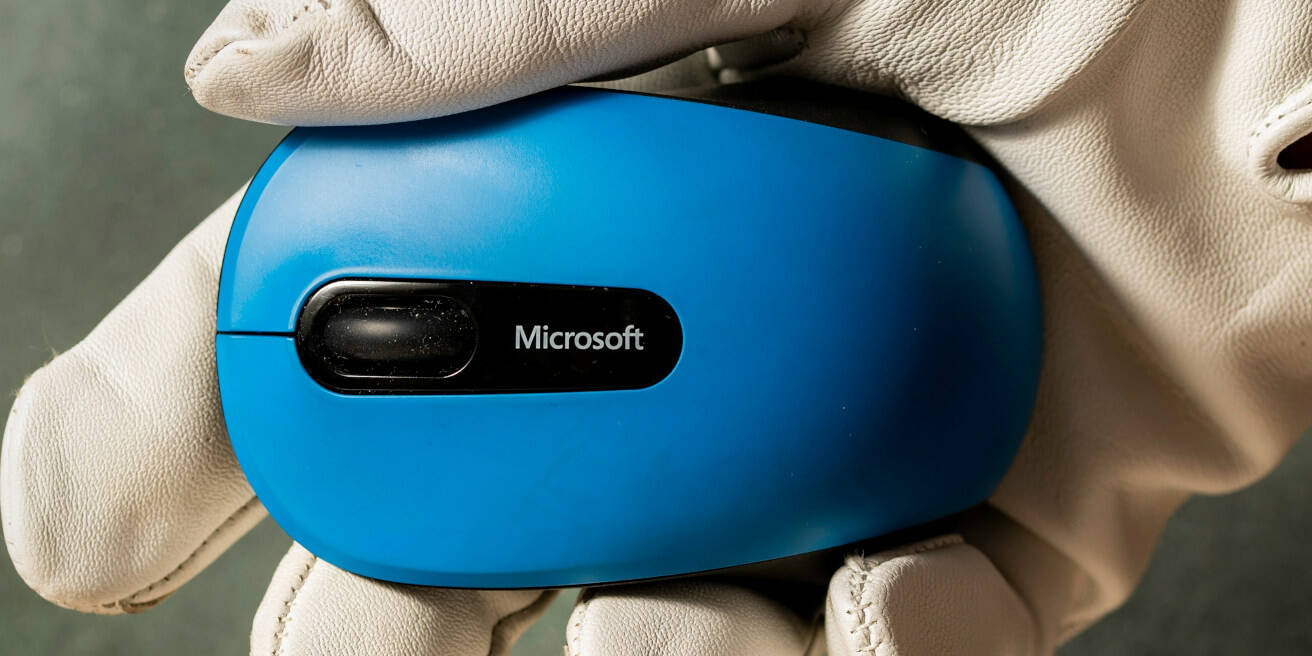The End Of Microsoft-brand Peripherals Is Only Surface Deep

Microsoft is a brand synonymous with PCs, not just for its market-dominating Windows operating system, but also for the mice and keyboards we've used to interact with them over the past four decades.
But no longer, at least not under the Microsoft label that is. The software giant this week revealed it would end production of its Microsoft-brand peripherals, which includes mice, keyboards, and webcams, to focus on its premium Surface-brand devices.
While perhaps not as famous as its software platforms, Microsoft's peripheral business actually predates the launch of its graphical Windows desktop environment by two years at least. Introduced in 1983, the Microsoft Mouse, remembered by many today as the "green-eyed mouse," came bundled with MS Word and Notepad at a retail price of $195, or about $550 in today's money.
And in 1980 Microsoft sold a Z-80 CPU add-on card for the Apple II, which we guess you can call a peripheral.
Microsoft's ergonomic keyboard didn't come along until over a decade later with the launch of the Natural Keyboard in 1994. The curving split keyboard was designed to, ideally, prevent carpal tunnel and other repetitive strain injuries common in office environments. In the nearly 30 years since the IT giant broke out to offer a variety of standard and ergonomic designs.
Moving forward, the corporation says it's ditching the Microsoft branding. In a statement to The Verge, Dan Laycock, senior communications manager at Microsoft, said the goliath would continue to offer a range of PC peripherals under the Surface name.
The Register reached out to Microsoft for further comment.
- Why would a keyboard pack a GPU and run Unreal Engine? To show animations beneath the clear keys, natch
- Apple releases Lisa source code on landmark machine's 40th birthday
- New models of IBM Model F keyboard Mark II incoming
- The Stonehenge of PC design, Xerox Alto, appeared 50 years ago this month
Microsoft has made numerous attempts to expand its hardware portfolio, with some, including its Kin phone, dying a quick death, and others, like its Xbox game consoles, proving wildly successful at one point at least. Microsoft's Surface portfolio of premium convertible tablets, notebooks, and desktops certainly falls in the latter camp.
Almost from the start, Microsoft offered a variety of Surface accessories, ranging from keyboard covers and styli for its Surface tablets starting in 2012. As that lineup expanded, the PC giant began offering keyboards, mice, and other accessories, usually built with premium materials such as aluminum, magnesium, and Alcantara fabrics.
The company did launch a Surface Ergonomic Keyboard in 2016, but it doesn't appear to have been in stock for some time now, with some speculating it may have been discontinued.
As it stands, there are a number of notable omissions from Redmond's Surface lineup, including webcams. But given the post COVID shift to remote work, it wouldn't be surprising to see Microsoft bring a premium Surface webcam to market. It's not clear at this point whether any of the existing Microsoft-brand peripherals will be rebranded under the Surface moniker.
In any case, if you're a long time fan of Microsoft's ergonomic keyboards, you may want to stock up while supplies last. ®
From Chip War To Cloud War: The Next Frontier In Global Tech Competition
The global chip war, characterized by intense competition among nations and corporations for supremacy in semiconductor ... Read more
The High Stakes Of Tech Regulation: Security Risks And Market Dynamics
The influence of tech giants in the global economy continues to grow, raising crucial questions about how to balance sec... Read more
The Tyranny Of Instagram Interiors: Why It's Time To Break Free From Algorithm-Driven Aesthetics
Instagram has become a dominant force in shaping interior design trends, offering a seemingly endless stream of inspirat... Read more
The Data Crunch In AI: Strategies For Sustainability
Exploring solutions to the imminent exhaustion of internet data for AI training.As the artificial intelligence (AI) indu... Read more
Google Abandons Four-Year Effort To Remove Cookies From Chrome Browser
After four years of dedicated effort, Google has decided to abandon its plan to remove third-party cookies from its Chro... Read more
LinkedIn Embraces AI And Gamification To Drive User Engagement And Revenue
In an effort to tackle slowing revenue growth and enhance user engagement, LinkedIn is turning to artificial intelligenc... Read more

